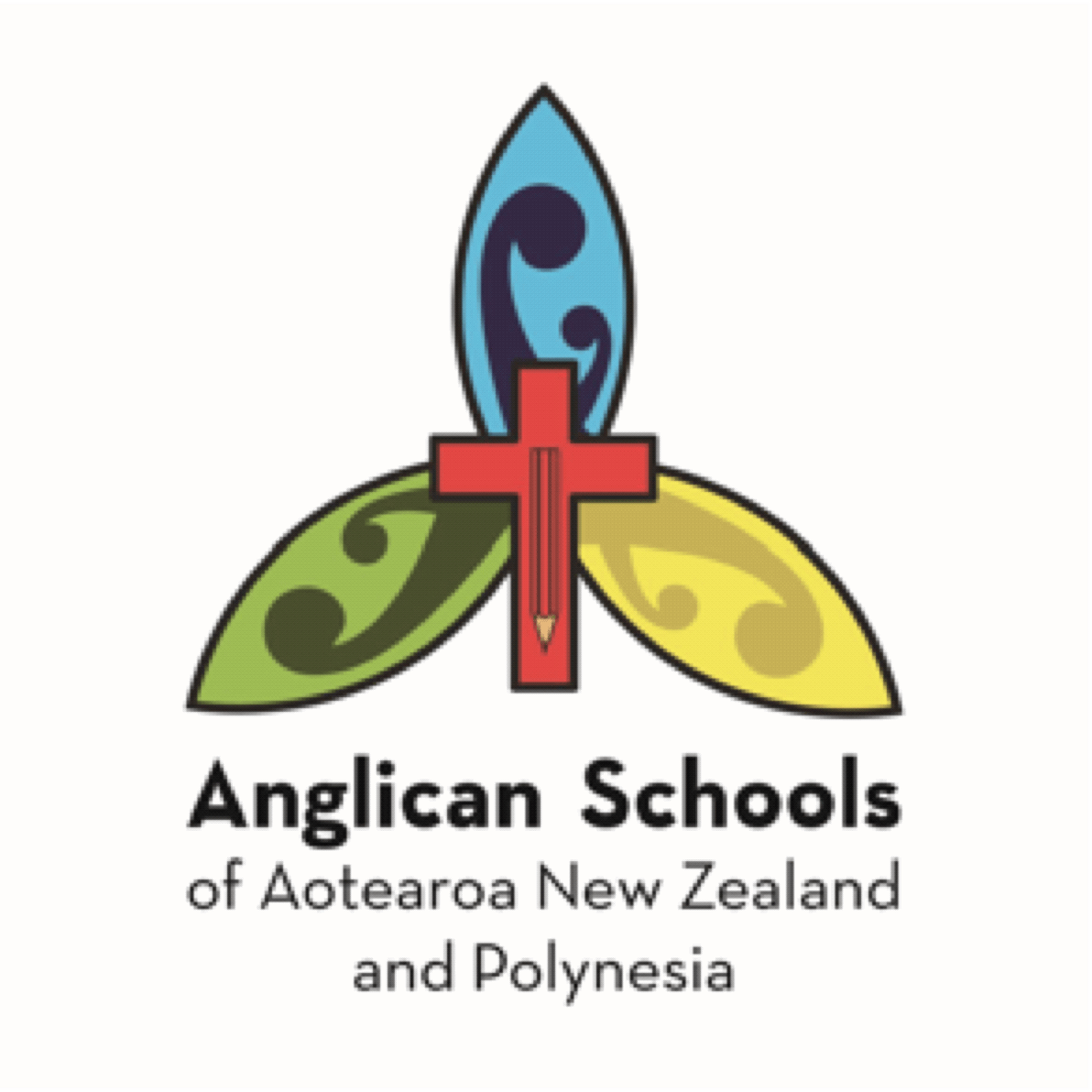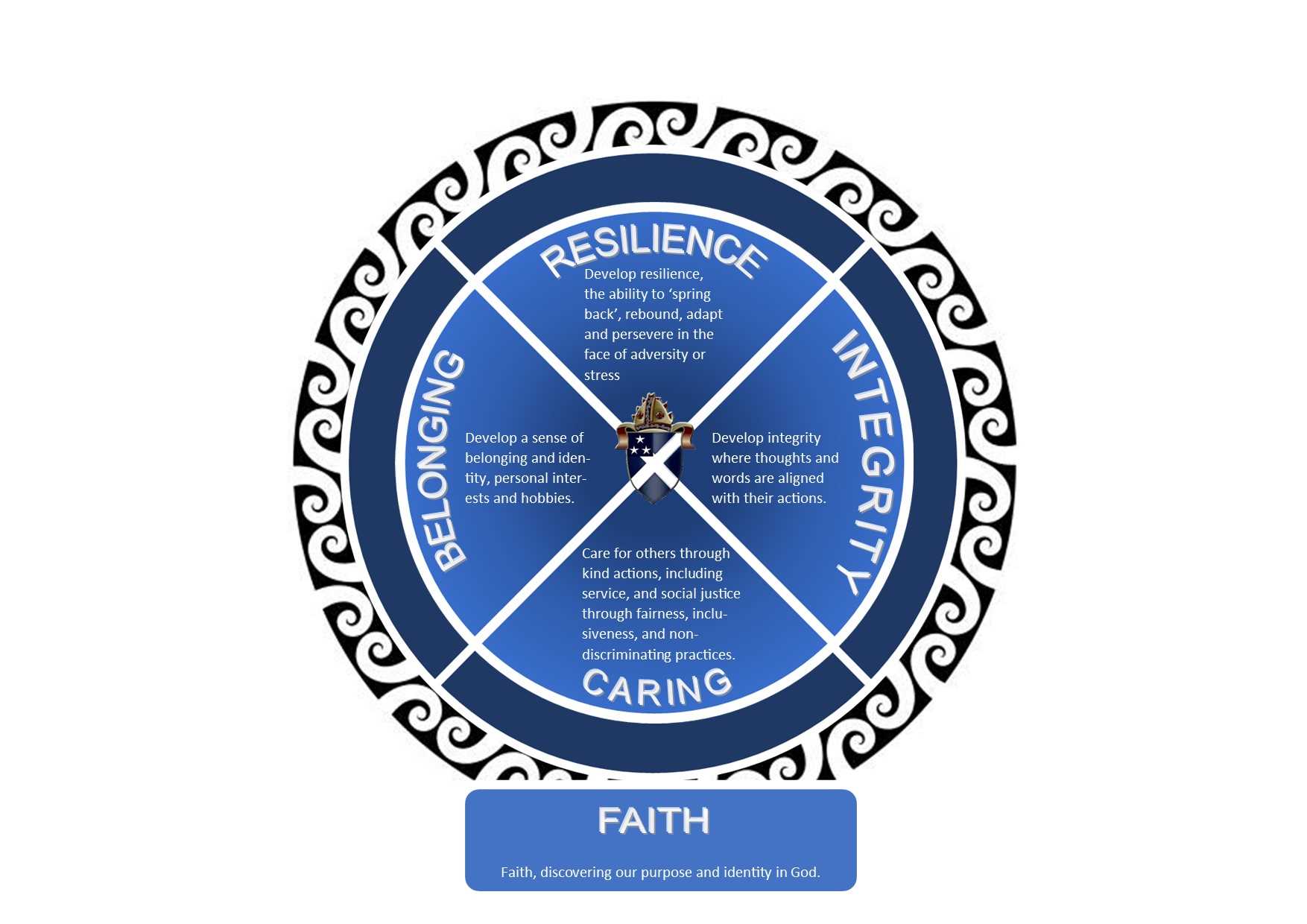
Health, Safety, and Welfare Policy
A primary objective of the board is to ensure that St Matthew's Primary School Hastings is a physically and emotionally safe place for all students and staff, as required by the Education and Training Act 2020 (s. 127) and in support of the Statement of National Education and Learning Priorities (NELP: Priority 1).
The board regularly reviews how well it implements key legislative and regulatory requirements, including those related to health, safety, and welfare, and takes steps to address any gaps in implementation. See Review Schedule and Board Assurances.
The board, as the PCBU (Person Conducting a Business or Undertaking – see table below) under section 36 of the Health and Safety at Work Act 2015, must do what is reasonably practicable to ensure the health and safety of workers, and work to eliminate or minimise health and safety risks.
At St Matthew's Primary School Hastings, we acknowledge our shared responsibility for health, safety, and welfare, and promote schoolwide engagement in related policies and procedures. Officers (see table below) at the school are encouraged to proactively undertake due diligence to ensure health and safety is prioritised by the board.
Health, safety, and welfare roles
The Health and Safety at Work Act 2015 defines different types of duty holders within a workplace, including schools. The Act outlines health and safety responsibilities for each type of duty holder.
Safety Management System
The St Matthew's Primary School Hastings health and safety management system brings together the various initiatives, assessments, procedures, control measures, and monitoring actions that are in place.
Allocating resources
The board provides the financial resources needed to comply with our health and safety obligations. This includes:
- the board and principal performing their duties under the Health and Safety at Work Act and exercising due diligence
- having a health and safety committee to:
- address health and safety issues
- support communication between workers and the board
- help ensure the school complies with its obligations as part of worker engagement, participation, and representation
- funding measures to eliminate or minimise risks as reasonably practicable.
Planning and implementation
St Matthew's Primary School Hastings sets goals for its health and safety performance in collaboration with the health and safety committee. We review these goals at least once a year.
Planning includes our planning and preparing for emergencies, disasters, and crises.
St Matthew's Primary School Hastings systematically and regularly identifies hazards and assesses risks. Examples of control measures in place include:
Performance measurement
St Matthew's Primary School Hastings measures our performance against our health and safety goals in a number of ways, including:
- regular communication with workers through our health and safety committee
- regular health and safety reports from workers
- health and safety goals as part of worker performance management
- regular reports to the board on any work-related illness or injury suffered by workers, and support plans for their safe and early return
- regular checks that workers are following health and safety procedures
- regular checks that inductions are carried out for workers, contractors, and visitors, as appropriate.
Performance review
St Matthew's Primary School Hastings measures health and safety performance through regular self-review and board assurances. This includes reporting on:
- risk management
- evacuation/emergency kit and supplies
- an audit of compliance by our health and safety committee
- first aid, recording and notification of accidents, and managing/administering/recording medication
- child protection
- abuse recognition and reporting
- searches, surrender, and retention of property
- physical restraint
- digital technology and cybersafety.
Risk Management
Under the Education and Training Act 2020, and in alignment with the Statement of National Education and Learning Priorities (NELP), St Matthew's Primary School Hastings has a duty to support the health, safety, and wellbeing of its students, staff, and community. Managing risk is a key method by which St Matthew's Primary School Hastings can carry out this duty. Managing risk includes:
- regularly identifying and reporting reasonably foreseeable hazards that could give rise to risks to health and safety
- eliminating such risks to health and safety so far as is reasonably practicable and reporting on any actions taken
- minimising such risks to health and safety so far as is reasonably practicable elimination is not possible, and reporting on any actions taken.
Definitions
A hazard is something that could cause harm. This broad definition is often divided into types of hazard:
- biological (e.g. viral and bacterial infections)
- chemical (e.g. asbestos, cleaning products, and pesticides)
- ergonomic (e.g. repetitive movements and posture)
- physical (e.g. harmful physical force and eye injuries)
- psychosocial (e.g. work relationships and roles, and other stresses such as deadlines and achievement expectations).
Risk is the likelihood that the hazard will cause harm and the severity of the potential harm.
Risk assessments identify hazards and the level of risk each hazard poses. This informs our decision-making about what needs to be done to eliminate or minimise risks, so far as is reasonably practicable.
Hierarchy of controls
Under the Health and Safety at Work Act 2015, St Matthew's Primary School Hastings is required to eliminate risks. If it is not reasonably practicable to do so, we follow the WorkSafe hierarchy of controls :
- Minimise the risks using risk-control measures such as:
- replacing the hazard with something that gives rise to a lesser risk
- isolating the hazard from any person exposed to it
- preventing anyone from coming into contact with the hazard
- implementing engineering controls.
- If a risk remains, minimise the remaining risk by implementing administrative controls, such as training.
- If a risk still remains, minimise the remaining risk by ensuring the provision and use of suitable personal protective equipment.
Identification and reporting
St Matthew's Primary School Hastings carries out regular audits to identify and report hazards. We recognise that new hazards arise regularly, so identification, assessment, reporting, decision-making, and implementing control measures form part of the day-to-day tasks of staff.
Once a hazard has been identified, St Matthew's Primary School Hastings assesses and makes decisions about how to manage the risk. We follow the hierarchy of controls (above) and consult with staff and any other relevant stakeholders where appropriate.
See How to Manage Work Risks (Worksafe) for guidance in assessing risk.
St Matthew's Primary School Hastings reports any new hazard that can't be easily and immediately eliminated using the Hazard Identification form . The form describes the hazard, its level of risk, and the actions taken to eliminate or minimise it. If the hazard can't be eliminated, it is entered on to the hazard register to be monitored and audited.
It is the responsibility of the principal to regularly monitor and audit all permanent hazards using the hazard register.
Monitoring and auditing hazards ensures that control measures remain effective, suitable, and fit for purpose; and that they are installed, set up, and used correctly.
Also see Earthquakes for an Earthquake Hazard Checklist to help minimise earthquake injury/damage in the classroom.
Worker Engagement, Participation, and Representation
All St Matthew's Primary School Hastings workers are responsible for health and safety. We encourage engagement and participation in our health and safety practices.
The board engages workers by:
- sharing health and safety information
- giving opportunities to share views and to raise health and safety issues
- including them in decision–making.
We have a health and safety committee that informs staff of its roles and responsibilities, monitors and reviews the school's health and safety compliance, and:
- responds to worker health and safety concerns
- conducts an internal audit each year
- reviews safe practices in using school buildings, plant, operation, EOTC, and emergency procedures, and reports on this to the board once each term.
Their role involves:
- supporting worker engagement and participation in health and safety
- raising and investigating general and specific concerns and complaints
- monitoring the health and safety measures taken by the board and giving the board feedback about compliance and hazards
- making recommendations to the board
- looking after the interests of workers who have been harmed at work.
The health and safety committee ensures that all workers have the opportunity to engage in improving work health and safety. This is done by discussing health and safety regularly at team meetings and encouraging feedback between workers and board members on health and safety issues, and keeping a record of communications and recommendations.
Workers also participate in health and safety through reporting hazards under Risk Management.
Refusing unsafe work
St Matthew's Primary School Hastings recognises that a worker may also refuse or cease work if they believe that it would expose them or any other person to a serious risk or hazard. The worker advises the principal of this decision and they work together towards a resolution. If the matter cannot be resolved, the worker can continue to refuse to do the task on reasonable grounds. The principal contacts WorkSafe for advice on any issues that cannot be resolved.
Healthcare
St Matthew's Primary School Hastings aims to fulfil our primary duty of care under the Health and Safety at Work Act and to create an inclusive and safe physical and emotional environment, which meets the requirements of the Education and Training Act. Providing effective healthcare policies is an important part of this responsibility.
We make every effort to ensure students have barrier free access to the education they are entitled to under the Education and Training Act 2020 (NELP: Objective 2, Priority 3). We have support systems in place for students and staff with diagnosed health conditions and for students and staff who return to school after a health-related absence.
School staff are trained to assist with healthcare (including managing medicines and dealing safely with blood and other body substances), and the school provides healthcare supplies and facilities. We communicate with parents/caregivers to keep accurate and up-to-date health information for students.
When an injury or illness occurs at school we have clear processes for providing first aid and communicating with key people.
St Matthew's Primary School Hastings keeps records of accidents, injuries, and illnesses that happen at school (including near misses) and investigates and reports on these as appropriate.
To protect our school community, we also have policies and processes for managing infectious diseases.
Recording and Reporting Accidents, Injuries, and Illness
We manage injuries and illness appropriately, including contacting emergency services if required and communicating with key people.
The board is required to provide a safe physical and emotional environment for all students and staff (Education and Training Act s.127) and to monitor the health of workers and the conditions at the workplace to prevent illness or injury (Health and Safety at Work Act s.36). To meet this requirement, there must be processes in place for the board to receive and consider information regarding incidents, hazards, and risks.
Our healthcare recording and reporting processes apply to students, staff, and any others in school workplaces (including visitors, volunteers, and contractors) and are in keeping with our privacy policy. For other types of healthcare recording, see Medicines and Health Conditions.
Recording accidents, injuries, and illness
Our school maintains an injury and incident register. Any accident, injury, or illness that requires first aid treatment and/or a visit to the sick bay is recorded in the register. We also record near misses.
If warranted, witness statements may be collected and photographs taken of an incident site. We comply with all privacy guidelines and take into account (or take advice on) any relevant cultural considerations in such circumstances.
All staff are responsible for recording accidents, injuries, and illnesses they deal with, and the injury and incident register is maintained by the principal and kept in the office.
Reporting and investigating accidents, injuries, and illness
The data recorded in our register is reported to the board regularly. This allows the board to review trends, investigate if needed, and respond in a timely way to reduce the likelihood of incidents happening again. Also see Risk Management.
Incidents (including near misses) are debriefed and investigated as appropriate to establish:
- what happened
- what could have prevented the incident (if anything)
- what needs to happen to resolve the incident
- what actions are required to improve school health and safety.
The board nominates a person or committee to lead each investigation, and outcomes are reported to the board. Investigations are undertaken with sensitivity to those involved and to privacy requirements. If WorkSafe, the Ministry of Health, or the police are involved, we follow their lead and advice regarding investigations. Appropriate records are kept of all investigations.
Once identified, actions are taken as soon as possible. If a hazard/risk is identified, we follow our risk management and hazard register processes.
If the incident is notifiable, we follow the procedures in WorkSafe Notifiable Events.
Other considerations
If an incident was the result of behavioural issues, we follow our behaviour management guidelines.
We follow additional procedures if an injury or near miss occurred as part of an emergency, disaster, or crisis.
Our records are retained in keeping with legal requirements.
Term 1 review topics
- Health, Safety, and Welfare Policy
- Safety Management System
- Risk Management
- Worker Engagement, Participation, and Representation
- Healthcare
- Recording and Reporting Accidents, Injuries, and Illness
Instructions for reviewers
- Follow the link to each policy in the table above.
- Read the policy.
- Click the red Policy Review icon at the right-hand top corner of the page. A new screen will appear.
- Select your role (board member, staff member, or parent/caregiver) from the drop-down list.
- Enter your name (optional).
- Submit your ratings and comments.
Community username: stmatthewsprimary
Community password: king
If you don't have internet access, school office staff can easily provide you with printed copies of the policy and the review form.
Subscribe to our Newsletter




 Admin Login
Admin Login